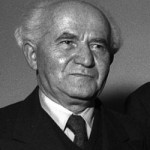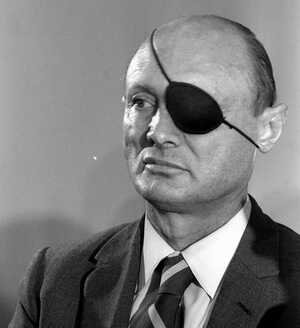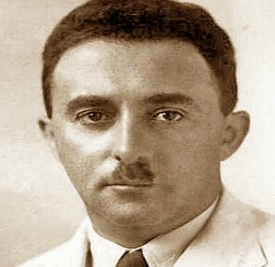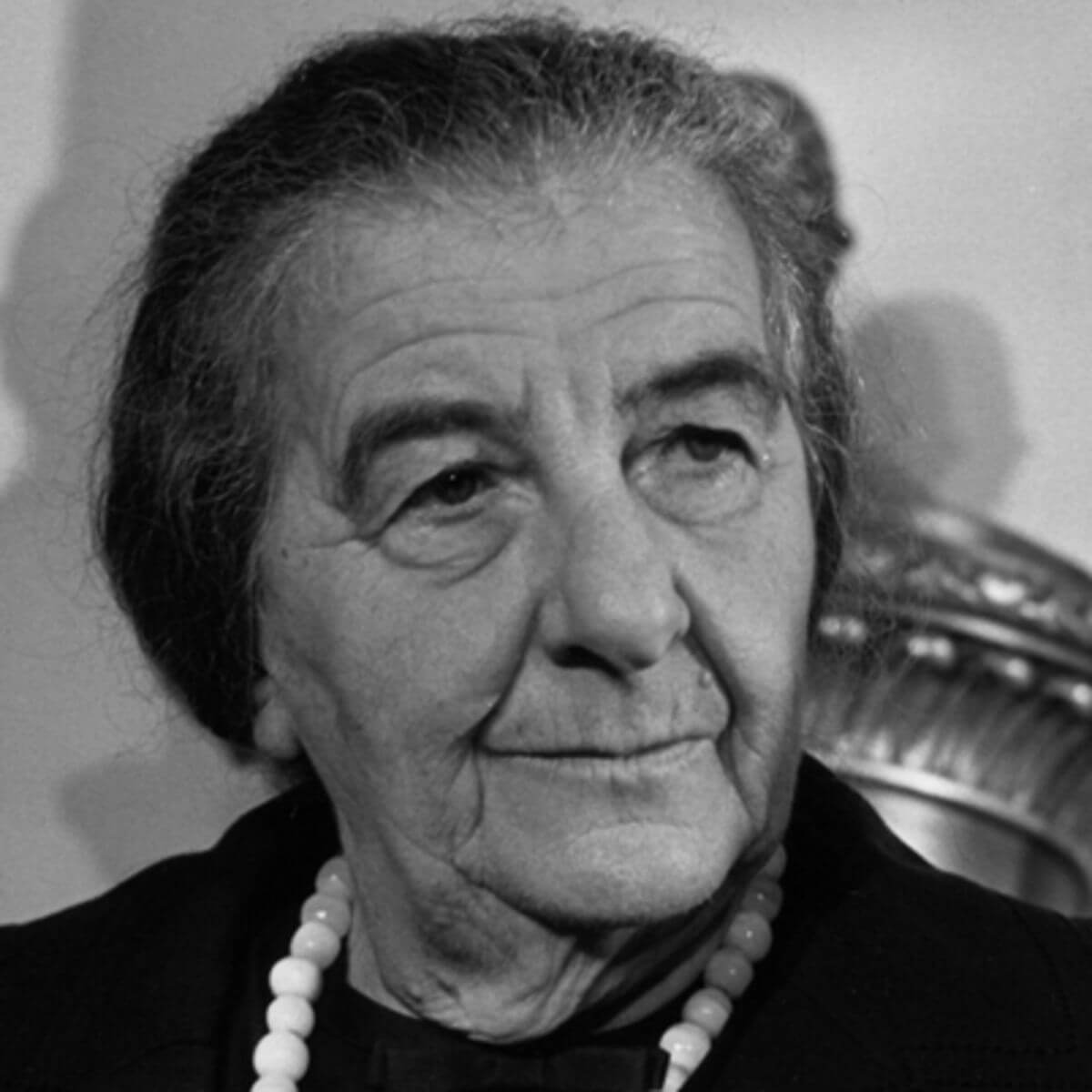1. Zeev Komran, Security Officer of the Israel Embassy in Bonn, to the Foreign Ministry, Jerusalem; 5 September 1972
ISA/MFA/5333/8
First reports from the police about the attack on the Israeli delegation at the Olympic Village in Munich, the taking of hostages and the terrorists’ demands.
2. Bureau of the Director-General of the Foreign Ministry, Jerusalem, to Eliashiv Ben-Horin, Israel ambassador in Bonn; 5 September 1972
ISA/ MFA/5334/4
Instructions of the Israeli government about the event in Munich and contacts with the hostage-takers: the government does not negotiate with terrorists and expects the government of the Federal Republic of Germany to make every effort to rescue the hostages. For that purpose any tactics should be used that will buy the time necessary to ensure the safety of the hostages
3. Meeting of the Knesset Foreign Affairs and Security Committee; Jerusalem, 5 September 1972
ISA/A/7056/9
Survey by Minister of Education and Culture Yigal Allon, Foreign Minister Abba Eban and Prime Minister Golda Meir of the attack on the Israeli team in Munich. Discussion of the demand to suspend the Olympic Games and security for Israelis abroad.
4. Notes of Telephone Discussions between Eliashiv Ben-Horin, Israel Ambassador in Bonn and the Foreign Ministry, Jerusalem, on 5-6 September 1972; 3 October 1972
ISA/A/7056/10
A collection of reports on contacts with the terrorists holding the Israeli athletes in the Olympic Village in Munich, and the rescue efforts, showing repeated postponements of the deadlines, information on the authorities’ intention to use force, reports from the airfield about exchanges of fire, giving conflicting numbers of injured, description of a burning helicopter.
5. Yitzhak Rabin, Israel Ambassador in Washington, to Mordechai Gazit, Director-General of the Foreign Ministry, Jerusalem; 5 September 1972
ISA/A/116/7
Report on his telephone conversation with US Secretary of State William Rogers about the attack on the Israeli delegation to the Olympics. Rogers agreed to help Israel’s efforts to bring about immediate suspension of the Olympic Games.
6. Yehuda Milo, Israel Embassy in Bonn to Yohanan Meroz, Assistant Director-General for European Affairs in the Foreign Ministry, Jerusalem; 5 September 1972
ISA/MFA/5334/4
Report on the decision by the International Olympic Committee, the West German committee and the West German authorities not to stop the games. Among the reasons given was that “German television has no alternative programme”.
7. Exchange of telegrams between Yitzhak Rabin, Israel Ambassador in Washington and Mordechai Gazit, Director-General of the Foreign Ministry, Jerusalem; 6 September 1972
ISA/A/116/7
The Americans’ position on stopping the Olympic Games in Munich following the attack on the Israeli delegation. Their request that Prime Minister Meir not approach President Nixon on this issue.
8. Yohanan Meroz, Assistant Director-General for European Affairs in the Foreign Ministry, Jerusalem to Eliashiv Ben-Horin, Israel Ambassador in Bonn; 6 September 1972
ISA/MFA/5334/4
Jesko von Puttkamer, the West German ambassador in Israel, has said that his government is leaning towards stopping the Olympic Games in Munich completely, following the attack on the Israeli delegation.
9. Stenographic Record of the Government Meeting; Jerusalem, 6 September 1972
ISA/A/59/2
A report on the murder of the Israeli athletes in the Olympic Village in Munich; discussion on the issues of a) whether Israel’s share in the failure to secure the safety of the delegation to Munich should be investigated; b) whether to demand that the Olympic Games be stopped; c) in light of the severe criticism directed at the failed German operation, the effect of the affair on Israeli-West German relations.
10. Exchange of messages between West German Chancellor Willy Brandt, Bonn, and Prime Minister Golda Meir, Jerusalem; 6 September 1972 (German and English)
ISA/A/116/7, MFA/5331/1
Willy Brandt expresses the sympathy of the German people for the grief of the people of Israel at the murder of its athletes. Golda Meir’s response, and her expression of thanks for the efforts of the West German government to free the hostages and sympathy for those killed or wounded during these efforts.
11. Prime Minister Golda Meir, Jerusalem to Yitzhak Ben-Aharon, Secretary-General of the Histadrut, Tel Aviv; 6 September 1972
ISA/A/7056/9
Meir explains that she is unable to attend the Histadrut Council meeting due to the events in Munich. A handwritten addition requests that at the Council discussion Arab terror should be attacked rather than Germany. A note from Yisrael Galili on the transmission of this message is attached, with Ben-Aharon’s reply to the prime minister’s request.
12. Bureau of the Director-General of the Foreign Ministry, Jerusalem, to the Israel Missions Abroad; 6 September 1972
ISA/MFA/5332/24
Instructs them to work to prevent a wave of attacks by the media and the Jewish community on West Germany for the failure of its attempt to rescue the hostages in Munich. The German government had good intentions and it was the first to act vigorously against the threat of terror.
13. Yohanan Meroz, Assistant Director-General for European Affairs in the Foreign Ministry, Jerusalem to the Israel Embassy in Bonn; 6 September 1972
ISA/MFA/5334/4
The West German ambassador in Israel, without the knowledge of his government, raised the issue of the participation of Willy Brandt, the Chancellor of West Germany, in the funeral of the Munich victims. The idea was rejected by Israel.
14. Exchange of telegrams between West German President Gustav von Heinemann, Bonn and President Zalman Shazar, Jerusalem; 6 September 1972 (German and English)
ISA/A/116/7, MFA/5334/4
The president of West Germany conveys his condolences on the murder of the Israeli sportsmen in Munich; the president of Israel thanks him for his words at the memorial ceremony.
15. Stenographic Report by Zvi Zamir, Head of Mossad, Institute for Intelligence and Special Operations, to the Prime Minister and the Team of Ministers on the Events in Munich; 6 September 1972
ISA/A/7056/9
Zamir reports to Golda Meir, Allon, Eban and Galili on his return from Munich, on his impressions of the failed operation by the German police for rescuing the Israeli hostages: the different stages of the operation, his contacts with German officials, his attempts to intervene when it was clear that the operation had failed, the German police’s indifferent attitude; his conclusions on the manner in which the operation was conducted.
16. Exchange of telegrams between Abba Eban, Foreign Minister, Jerusalem and Eliashiv Ben-Horin, Israel ambassador in Bonn and Yitzhak Ben-Ari, Israel Minister in Bonn: Message from Prime Minister Golda Meir, Jerusalem to West German Chancellor Willy Brandt, 6 September 1972 (in English)
Yitzhak Ben-Ari, Israel Minister in Bonn, to Abba Eban, Foreign Minister, Jerusalem, 7 September 1972
ISA/A/116/7
In view of the disturbing report from the head of Mossad, Zvi Zamir, on the actions of the German police during the events in Munich, the prime minister writes that she believes that an investigation is needed.
In his reply, the minister in Bonn relates that the message was forwarded to Chancellor Brandt, who promised that the West German government would examine the events in Munich.
17. Report by Zvi Zamir, Head of the Mossad, on the Operation to Rescue Hostages in Munich; 6 September 1972 (Hebrew and English)
ISA/A/7056/9
His account of the development of events: the negotiations with the kidnappers, the decisions of the Germans directing the operation, information on the details of the rescue operation, stages of the operation at the airfield, his attempts to speak with the kidnappers, his conclusions as to the reasons for the failure of the operation, which was “carried out badly and ineptly, which caused the tragic outcome”. A sketch is attached of the situation at the Fuerstenfeldbruck airfield.
18. Eliashiv Ben-Horin, Israel Ambassador in Bonn, to Abba Eban, Foreign Minister, Jerusalem; 13 September 1972
ISA/MFA/5332/24
Report on his meeting with Chancellor Brandt, in which he presented him with Zamir’s report on the events in Munich. He mentioned that President von Heinemann’s comments at the memorial ceremony on the responsibility of the Arab countries for encouraging terror were welcomed by Israel. They discussed West Germany’s policy towards the Arab countries and their support of terror, and its policy towards international terrorism.
19. Meeting of the Knesset Foreign Affairs and Security Committee; Jerusalem, 22 September 1972
ISA/A/7118/5
Report by Zamir on the attempted rescue of the Israeli hostages in Munich and the reasons for the failure of the rescue operation by the Bavarian police.
20. Yehuda Milo, Israel Embassy in Bonn to the European Division, Jerusalem; 6 September 1972
ISA/MFA/5332/24
Report on the rising criticism in Germany of the failure of the rescue operation in Munich and on the questions being asked about the security forces’ actions.
21. Press Release from the West German Commission for Dealing with the Crisis of the Kidnapping of the Israeli Hostages in Munich; 7 September 1972 (Hebrew translation)
ISA/A/116/7
Details of the development of the chain of events in Munich, from beginning to end, and an explanation of the actions of the German forces.
22. Yitzhak Ben-Ari, Israel Minister in Bonn, to the Foreign Ministry, Jerusalem; 10 September 1972
ISA/MFA/5334/4
A recommendation not to issue statements on the failure of the German operation to rescue the hostages in Munich before the investigation has been concluded. A dispute is developing between political parties in Germany on this issue.
23. Eliashiv Ben-Horin, Israel Ambassador in Bonn, to Yohanan Meroz, Assistant Director-General for European Affairs in the Foreign Ministry, Jerusalem; 15 September 1972
ISA/A//116/7
His meeting with the Minister of the Interior of West Germany, Hans-Dietrich Genscher, who gave him the main points of the report of the West German commission to investigate the events in Munich. Genscher’s reservations about statements in the report by Zamir on his role in the attempt to rescue the hostages in Munich.
24. Hebrew Version of the Report of the Joint Enquiry Commission of the Federal Government of West Germany and the Bavarian Government into the Events in Munich, 20 September 1972
ISA/MFA/5331/12, MFA/5331/11
Gives details of the development of events and the committee’s conclusions on three aspects of the affair: 1. Security measures in Munich and the Olympic Village; 2. Efforts to rescue the hostages without using force; 3. Munich police actions in Munich and at the Fuerstenfeldbruck airfield. A memorandum is attached from Michael Peled, of the European Division 1 at the Foreign Ministry, to Mordechai Gazit, the director-general of the Ministry, which summarizes the main points of the German report, as received from the embassy in Bonn.
25. Mordechai Gazit, Director-General of the Foreign Ministry, Jerusalem, to Prime Minister Golda Meir, Jerusalem; 29 September 1972
A table that compares the version of the report by the German enquiry commission into the events in Munich to the versions of Mossad chief Zvi Zamir and the Israeli ambassador in Bonn, Ben-Horin, regarding details of the attack on the Israeli team in Munich and the rescue attempt.
Appendix: An additional document with points from the German report on the security preparations for the Olympics, some of which were made in coordination with Israel.
26. Collection of documents on the responses of West German leaders to Zvi Zamir’s report on the Munich disaster:
1. Eliashiv Ben-Horin, Israel Ambassador in Bonn to Simcha Dinitz, Director-General of the Prime Minister’s Office, Jerusalem; 10 October 1972
2. West German Chancellor Willy Brandt, Bonn, to Prime Minister Golda Meir, Jerusalem; Comments of Minister of the Interior Hans-Dietrich Genscher on Zvi Zamir’s report (attached); 9 October 1972 (in German)
3. Eliashiv Ben-Horin, Israel Ambassador in Bonn, to Simcha Dinitz, Director-General of the Prime Minister’s Office, 10 October 1972 (includes the Hebrew translation of Willy Brandt’s letter to Golda Meir)
4. Genscher’s comments (Hebrew translation)
Brandt’s comments regarding the conclusions Germany reached about dealing with terrorism; Genscher’s comments on paragraphs in the Zamir report relating to his part in the operation to release the hostages in Munich, and on other paragraphs.
27. Yohanan Meroz, Assistant Director-General for European Affairs in the Foreign Ministry, Jerusalem to the Israel Ambassador in Bonn, Eliashiv Ben-Horin; 13 September 1972
ISA/MFA/5253/5
Describes a meeting between West German Ambassador Jesko von Puttkamer and Prime Minister Meir. The ambassador read out a message in English from his government on its concern at the prime minister’s intention to express harsh criticism of Germany’s actions in Munich during the next Knesset session, especially in view of the approaching elections. Mrs. Meir replied that she appreciates the West German government’s efforts, but cannot pass over the failures.
28. Consultation with the Prime Minister; Ramat Aviv; 13 October 1972
The prime minister explains to two members of the investigating team the background to their appointment to examine Israel’s part in the Munich disaster; discussion of their remit and fields of activity.
29. Prime Minister Golda Meir, Jerusalem to Pinchas Koppel, Avigdor Bartel and Moshe Kashti; 13 September 1972
ISA/A/197/6
The formal appointment of the members of the team to investigate and clarify the security arrangements of the Israeli delegation to the Munich Olympics. Koppel will head the team; they are to report by 25 September 1972.
30. Reports on Intention to Carry out a Terrorist Attack, July-August 1972
ISA/A/197/6
A list of warnings about possible attacks on Israeli targets, mostly in Europe, received in the two months preceding the Munich attack, that was given to the Koppel Committee.
31. Report of the Team Appointed by the Prime Minister to Investigate and Clarify the Security Arrangements of the Israeli Delegation to the Munich Olympics (the Koppel Committee); 29 September 1972
ISA/A/7036/19, A/197/6
Gives the team’s findings on the subjects of contacts and arrangements prior to the delegation’s arrival in Munich; contacts and arrangements related to the issue of security in Munich; the delegation’s testimony; German activities in the field of security; warnings about intent to commit a terrorist act. Their conclusions and recommendations.
Appendix: Eliashiv Ben-Horin, Israel Ambassador in Bonn to the Foreign Ministry, 26 September 1972
32. Stenographic Record of the Government Meeting, Jerusalem; 1 October 1972
ISA/A/59/4
The prime minister’s announcement about the report of the team investigating the security arrangements of the Israeli delegation to the Munich Olympics. Discussion of the press coverage of the committee’s work.
33. Consultation of the Prime Minister with a Team of Ministers about the Conclusions of the Enquiry Team on the Munich Disaster; Tel Aviv, 5 October 1972
Present: Prime Minister Golda Meir, Ministers Allon, Galili, Ya’acov Shimshon Shapira and Haim Bar-Lev. They discussed the committee’s work, the report and its determination of the responsibility of the government ministries for the events in Munich; the question of who bears the responsibility and who should pay the price. Further action to be taken by the prime minister in relation to the investigation and the report and the possibility of resignations by those found responsible for failures.
34. Consultation of the Prime Minister with a Team of Ministers about the Conclusions of the Enquiry Team on the Munich Disaster; Jerusalem; 7 October 1972
Present: Prime Minister Meir, Ministers Allon, Galili, Shlomo Hillel, Shimon Peres, Ya’acov Shimshon Shapira, Victor Shem-Tov. Discussion of the conclusions reached by the team investigating the Munich disaster and of an additional team appointed to advise the prime minister on her report about the security arrangements of the Israeli delegation to the Munich Olympics. The contents of the report and how it should be presented to the cabinet and the Knesset; publicizing the names of those involved; conclusions regarding those involved in the failure of the security arrangements.
35. Meeting of the Knesset Foreign Affairs and Security Committee; Jerusalem, 9 October 1972
ISA/A/7056/10
Discussion with Prime Minister Meir on the report of the Koppel Committee and her report on the security arrangements of the Israeli delegation to the Munich Olympics. The full contents of the prime minister’s report, a review of the complexity of the struggle against terrorist organizations abroad and the difficulty of fighting terrorism in countries friendly to Israel. Claims by members of the committee that they were not presented with all the witness material, their comments on the findings of the Koppel Committee, the activities of the intelligence services, the war on terrorist organizations abroad.
36. Meeting of the Knesset Foreign Affairs and Security Committee; Tel Aviv, 3 November 1972
ISA/A/7116/6
Discussion with Prime Minister Meir on the war on terrorist organizations: the position of committee members that Israel should adopt a policy of attacking terrorists wherever it is required; steps to implement this policy; the war on terrorism with the cooperation of friendly countries or without it; punitive attacks on Libya, which had taken in the Munich terrorists who were released; defence of Jews abroad; the efficiency of activity by the intelligence organizations.
37. Notes from Foreign Minister Abba Eban and Minister without Portfolio Yisrael Galili to Prime Minister Golda Meir; [Jerusalem] 29 October 1972
ISA/A/7056/10
The hijacking of a Lufthansa plane and Israel’s response to the possibility that the hijackers will demand the release of the Munich terrorists.
38. Yohanan Meroz, Assistant Director-General for European Affairs in the Foreign Ministry, Jerusalem to Eliashiv Ben-Horin, Israel Ambassador in Bonn, 29 October 1972
ISA/MFA/5331/16
Request by the government of Israel to the government of West Germany not to capitulate to the extortion by the hijackers of the Lufthansa plane, which would only add to the Munich disaster.
39. Telephone Reports from Eliashiv Ben-Horin, Israel Ambassador in Bonn, about the Hijacking of a Lufthansa Plane; 29 October 1972
ISA/MFA/5331/16
Information on the developments in the hijacking and the hijackers’ demands; the Israeli government’s demand from the West Germans not to capitulate; responses of the West German government, a talk with West German Foreign Minister Walter Scheel regarding the decision of his government to release the terrorists in response to the hijackers demands.
40. Nissim Ya’ish, Director of European Department 1 in the Foreign Ministry, Jerusalem to Eliashiv Ben-Horin, Israel Ambassador in Bonn, 30 October 1972
ISA/MFA/5331/16
Foreign Minister Eban’s meeting with the West German ambassador, von Puttkamer: Eban protested against the West German government’s decision to release the Munich terrorists in response to the demands of the hijackers of the Lufthansa plane, and emphasized the severity of the act and its negative effects on the struggle against international terrorism. The ambassador replied that his government had no choice.
41. Foreign Ministry, Jerusalem, to the Israel Embassy in Bonn, 30 October 1972
ISA/MFA/5331/16
The Histadrut (General Federation of Labour) has decided to suspend sending delegations to West Germany, in protest at the release of the Munich terrorists.
42. Eliashiv Ben-Horin, Israel Ambassador in Bonn, to Yohanan Meroz, Assistant Director-General for European Affairs in the Foreign Ministry, Jerusalem; 1 November 1972
ISA/MFA/5331/16
Ben-Horin met with West German Foreign Minister Scheel and informed him that he has been called to Israel for consultations. They discussed the surrender of the West German government to the demands of the hijackers. Scheel explained the reasons for their decision, but insisted that the policy of the West German government regarding the fight against terrorism had not changed.
43. Stenographic Record of the Government Meeting; Concluding Statement of the Meeting, 5 November 1972
ISA/A/59/6, A/7056/10
The government discussed the hijacking of the Lufthansa plane and the West German government’s surrender to the demands of the hijackers to release the three surviving Munich terrorists; the Israeli response and its effect on future relations between the two countries; mentioning the events in light of Germany’s Nazi past. The concluding statement of the meeting expressed protest at the release of the terrorists and statements made by official spokesmen of the West German government and the actions of its leaders.
44. Message from West German Chancellor Willy Brandt to Prime Minister Golda Meir; [Bonn], 8 November 1972 (German and English)
ISA/A/7056/10
The reasons that caused the West German government to release the Munich terrorists in response to the demand by the hijackers of the Lufthansa plane. Expresses his government’s determination to fight terrorism and his pain at the harsh expressions in Israel against West Germany. Protests at the comparisons with the Nazi period.
45. Conversation between Prime Minister Golda Meir and the West German Ambassador in Israel, Jesko von Puttkamer; Jerusalem, 8 November 1972
ISA/MFA/5331/16
The ambassador gave the prime minister a personal message from Chancellor Willy Brandt (Document 44). They discussed reactions in Israel to the release of the Munich terrorists and the attack on the chancellor, the distinction between the present time and the Holocaust period, the German government’s policy regarding the war on terror, statements in Germany that angered Israel and their mutual desire to prevent damage to Israeli-German relations.
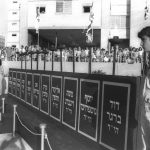
Ceremony in memory of the 11 murdered sportsmen near the memorial in Tel Aviv, September 1974. Photograph: Yaacov Sa’ar, Government Press Office

